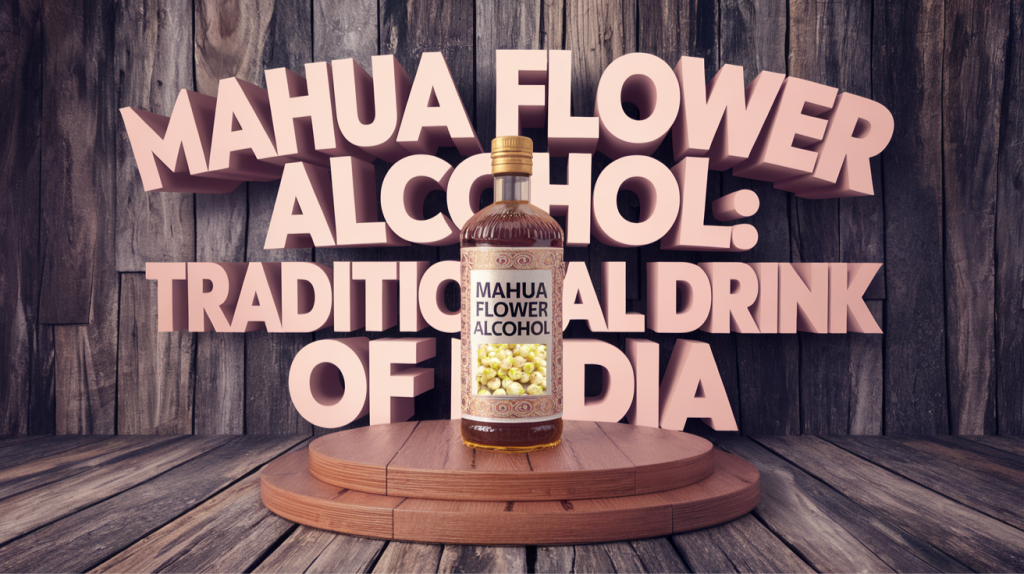Mahua liquor is the traditional liquor known as Mahuaa or Mahuwa, made from the mahua flower alcohol. It is very much prevalent in eastern India, Nepal, and Bangladesh. It usually contains 11% alcohol by volume but is prepared and consumed underground, often illegally as much more concentrated liquor in rural areas.
For more information: Business Ideas and Investments Opportunities
Preparation of Mahua Liquor
Mahua liquor, often known as Mahua Suraa, is very fresh and made from mahua flower alcohol added with unfermented rice beer after removing yeast to get distilled liquor. Distillation will subsequently yield the liquor. Mahua is the tree (Madhuca Longifolia) – the tree that grows in dry tropical and subtropical conditions-having size biopsies at Andhra Pradesh, Gujarat, Madhya Pradesh, Odisha, Chhattisgarh, Jharkhand, Bihar, and Uttar Pradesh terrarium.
Manufacturing Process of Liquor
The variety of liquor includes flavors and formats. Broadly fermenting and distilling are the general forms of manufacture.
- Fermentation – Sugars are converted into alcohol by fermentation.
- Distillation – This process strips excess water, raising the alcohol content.
- Aging – Some liquors are aged in wooden barrels to enhance their color and flavor.
Commonly stated, liquors would need to be alcoholic and distilled beverages. The distillation process and lack of extra sugar create conditions for hard liquor with high alcohol content. The alcohol percentage is denoted as Alcohol by Volume (ABV), while the proof is twice the ABV. “80 proof” would mean the liquor has 40% ABV.
Project Reports: Mahua Flower Alcohol
Economic and Cultural Importance of Mahua Liquor
Mostly this mahua liquor or country liquor falls among the cheapest alcoholic beverages in India. Costs are reduced because dried mahua flower alcohol is much less expensive than other raw materials. Three liters of mahua flower alcohol can be made from five kilograms of dried mahua flowers.
Quality and Characteristics of Mahua Liquor
Characteristics of mahua liquor:
- A fragrant and floral smell
- Sweet and smoky aftertaste
- colorless or pale whitish
- Mild but distinct mahua flower alcohol flavor comparable to sake
The easiest way to judge the quality of whiskey is to hold the bottle against a flame and see if it burns. It is the method of testing liquor’s strength and purity.
Health Effects of Alcohol Consumption
Consumption of alcohol gives some benefits to health, but the abuse does damage. Benefits of moderate consumption of alcoholic drinks include the following:
- Mental stress reliever – Helps relax subsequently to daily busy activities.
- Improves sleep – Due to the sedative properties, drinking alcohol makes sleeping easy.
- Enhances appetite – More blood would go to the stomach, creating more conditions for food.
- Regulates body temperature – The action of alcohol increases blood circulation to the skin, whereby it keeps warm in winter and cool in summer.
- It contributes to body fat composition – Alters metabolism, increases calorie intake.
- Dulls the receptors for pain in the brain – Alcohol numbs pain receptors.
- Reduces gallstones risk – Two units of alcohol drunk per day reduce gallstone-risk by one-third.
- Reduced Type 2 diabetes risk – Moderate wine consumption was reported to lower diabetes risk.
- Enhances immunity when taken occasionally by nonsmokers – Moderate occasional intake of alcohol is likely to act as a deterrent to catching colds.
Download PDF: Mahua Flowers Liquor
Project Economics: Investing in Mahua Flower Alcohol Production
The project report estimates an overall capital investment requirement of around Rs. 13.21 Crore for a 5000 liters mahua flower alcohol production plant from mahua flower. These financial requirements include expenses for land, building, plant, machinery, and working capital.
Key Financial Metrics:
- Plant Capacity: 5000 Ltr/day
- Land & Building (10000 Sq.Mtr): Rs. 10.60 Cr
- Plant & Machinery: Rs. 1.46 Cr
- Working Capital for 2 Months: Rs. 68.90 Lacs
- Total Capital Investment: Rs.13.21 Cr
- Rate of Return: 11%
- Break-Even Point: 67%
These forecasts create a favorable ambiance for investment in mahua flower alcohol production, thus attracting budding entrepreneurs and investors.
Related Articles: Mahua flowers could be a component of baked goods …
India’s Alcohol Industry Growth
According to industry estimates, India is the fastest-growing alcoholic beverage market. The Indian Council for Research on International Economic Relations- ICRIER States:
- Industry size stands at $52.5 billion (around ₹3.9 lakh crore).
- Expected to grow at a CAGR of 6.8% by 2023.
- The sector employs over 15 lakh.
Regulation and Market Trends
Government regulations are strict, controlling liquor industry aspects like capacity creation, distribution, and taxation. Even socially taboo classes of society are known to drink alcohol. Industry growth and the safety of the public shall be ensured with strict control over illegal production and unregulated consumption. Country liquor has its major market share in India, especially in the northern region. The Indian-Made Foreign Liquor (IMFL) segment has been surging, but it looks like mahua flower alcohol will remain in the upper hand for the foreseeable future.
Market growth factors include:
- Changing alcohol-consumption trends
- Increasing number of pubs and bars
- Rising shares of women as consumers of alcoholic beverages
Youtube Video: Mahua Flowers Liquor | Alcoholic Drink Mahuwa | Country Liquor.
Conclusion
Mahua liquor has traditions, cultures, and economy for India. Moderation in consumption of mahua can be beneficial, but excessive drinking is injurious. In the changes of drinking habits and evolving social status, the mahua flower alcohol industry is thriving. To continue along the route of sustainability, however, production needs to be controlled, illegal activities avoided, and responsible drinking promoted.

